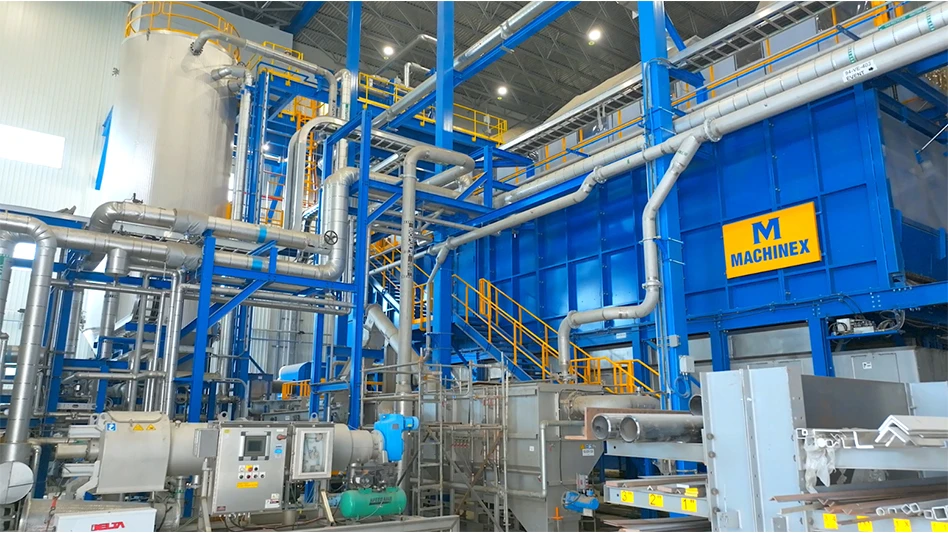
Photo courtesy of SSAB AB
Sweden-based Volvo Car Corp., while announcing its membership of the World Economic Forum’s First Movers Coalition (FMC), also says it has reached an agreement to use recycled-content steel from fellow Swedish company SSAB.
Regarding its FMC membership, the company points first to the effects on its aluminum supply, saying, “By joining this coalition of some of the world’s largest companies, we’re putting our purchasing power behind emerging clean technologies in the aluminum sector, clearly signaling our demand for near-zero emission aluminum,” states Volvo. “In doing so, we hope to play a role in reducing direct emissions from primary aluminum production to deliver a net-zero aluminum sector by 2050.”
Looking to the future of its steel supplies, the company more directly mentions recycling. “We’re also taking action in the steel industry, through our collaboration with Swedish steel producer SSAB. We were the first car maker to team up with SSAB to explore near-zero emission, high-quality steel for the automotive industry. Now, we have secured access to near-zero emission primary and recycled sheet steel from SSAB that we plan to use in an upcoming car program by 2026.”
“We have previously used the COP summits to push collective climate action and COP28 will be no different,” says Jonas Otterheim, head of climate action, Volvo Cars. “What we and other like-minded companies are trying to do is develop and scale up transformational technologies to decarbonize sometimes ancient industrial processes. By joining the FMC and showing tangible progress in our partnership with SSAB, we hope to demonstrate that this vital shift is not just possible but is already underway.”
Earlier this year, SSAB President and CEO Martin Lindqvist indicated to investors his company expects soon to be able to charge a premium for its Zero brand recycled-content steel, especially in Europe.
Reaching supply agreements with large-scale users like Volvo Cars could be a step in that direction.
“The world urgently needs to come together and act, to avoid the worst effects of climate change," says Javier Varela, chief operating officer and deputy CEO of Volvo Cars. "We’re committed to doing our part and we call on corporate and political leaders around the globe to also do theirs.”
Volvo Cars says it is “doubling down” on its climate action plan, which it says is already one of the most ambitious in the automotive industry.
“As part of our ambition to become climate neutral by 2040, we’re today announcing our aim to reduce CO₂ emissions per car by 75 percent by 2030, compared to a 2018 baseline,” the automaker says.
“During the first nine months of this year, overall CO₂ emissions per car were 19 percent lower compared with our 2018 benchmark."
Latest from Recycling Today
- Cascades names its new president and CEO
- Bangkok to host September paper recycling event
- Smithers sees growth in food-contact PCR market
- Liebherr USA adds sustainability GM
- BGL report finds solid foundations for sustainability investments
- Bridgestone introduces retreating plant virtual tour
- USTMA announces Tire Recycling Foundation
- Dow announces agreement with Freepoint and MOU for Asia Pacific market with SCGC





